The average cost to ship a car in 2025 is estimated around $1.85/mile for short distances (1-500 miles) or $555 for a 300-mile trip. Medium distances average about $.91/mile (500-1500 miles) or $910 for 1000 miles. Long distances (1500+ miles) are about $.59/mile or $1,180 for a 2000-mile trip. It’s important to note that car shipping costs may vary and the rates for enclosed car shipping will be higher.
When it comes to shipping your vehicle, there are several factors that come into play when determining the cost. Everything from the type of vehicle you’re shipping to the type of shipping method you choose will affect the price.
To get a clear idea of what your final cost will be, we recommend using our free instant quote calculator for an estimate. You can also speak with a JBRM representative at (866) 301-4039 to discuss your shipment and request a quote. This will give you the most accurate estimate possible, taking into account factors such as the distance of the shipment, seasonal demand, any additional services required and current market rates.
JBRM TruePrice Guarantee is a customer-first pricing model that makes the auto transport process more transparent and protects against deceptive pricing practices. After you book your order, our TruePrice Guarantee ensures that your booked price is the price you’ll pay. If shipping rates increase during your 30-day protection period, we’ll cover the charge.
When your order is confirmed by a JBRM agent, the auto transport process will begin and the TruePrice Guarantee is activated. No payment is required until a carrier has been assigned to your order.
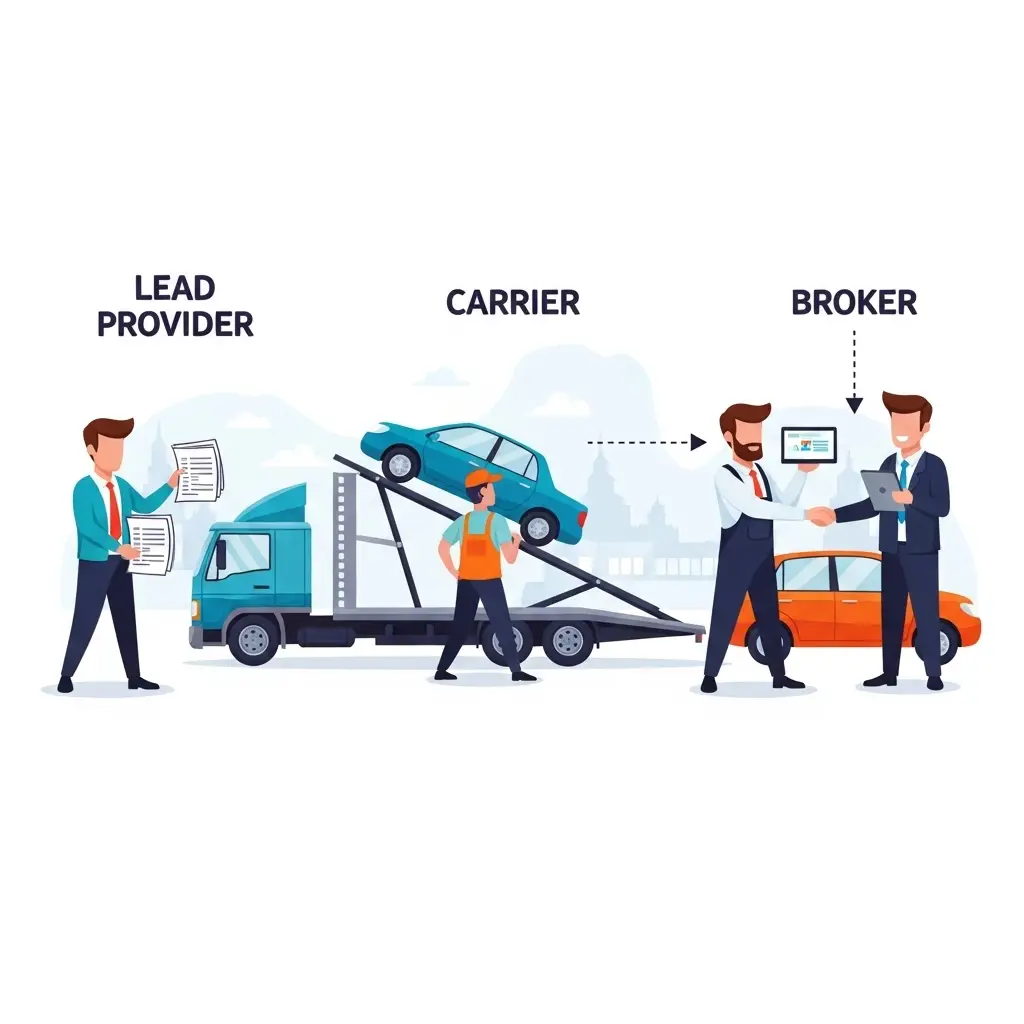
There are three types of companies you might work with to ship your vehicle: lead providers, carriers and brokers.
In exchange for providing your contact information, lead providers supply vehicle owners with a list of “leads” or potential carriers, based on the owner’s search criteria. The owner is responsible from there to further research or contact the carriers on the list to determine the best option for their needs and budget. Lead providers will typically share your contact information with their network, so you will likely receive phone calls and emails from the various transport companies.
Carriers employ the truckers who do the actual transportation of your car, picking it up and dropping it off at the designated locations. You can work directly with a carrier company—from requesting a quote for shipment, to working out details, to the actual transport—but without some industry knowledge it can be hard to identify the best carrier for your unique vehicle shipment. This is why you might choose to work with an auto transport broker. Brokers work as the middle man between vehicle owners and a network of carriers, finding the best-suited solution for the highest value.
Auto transport quotes and car shipment rates are calculated using unique considerations for each customer. Your car shipping estimate will be based on several different transport factors. This includes, but isn’t limited to: trip distance, car size (sedan, pickup truck, SUV, etc.), vehicle condition (operable or inoperable), transport type (open or enclosed), location (i.e. rural or urban) and the time of year you ship. Montway’s instant quote calculator lets you enter all the details about your vehicle, allowing us to generate the most accurate and cost-optimized price—without hidden fees.
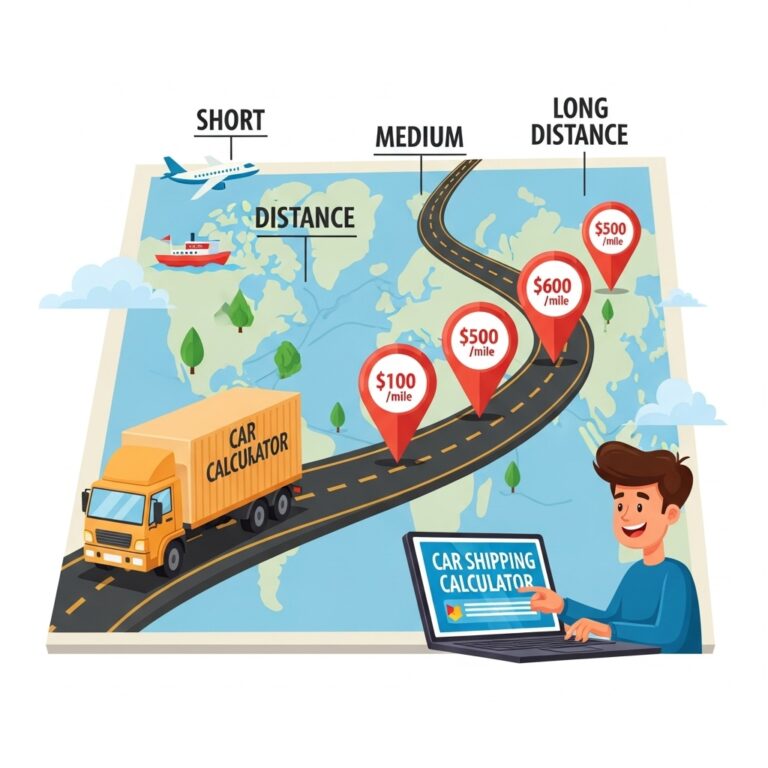
Total distance is the main component used in calculating a quote for car shipping. Longer distances generally lead to a higher overall car shipping price, but also include a discounted cost per mile. With our car shipping calculator, you can get the best auto transport quote for any car shipment. It’s important to note that international car shipping prices might differ from ground vehicle transport.
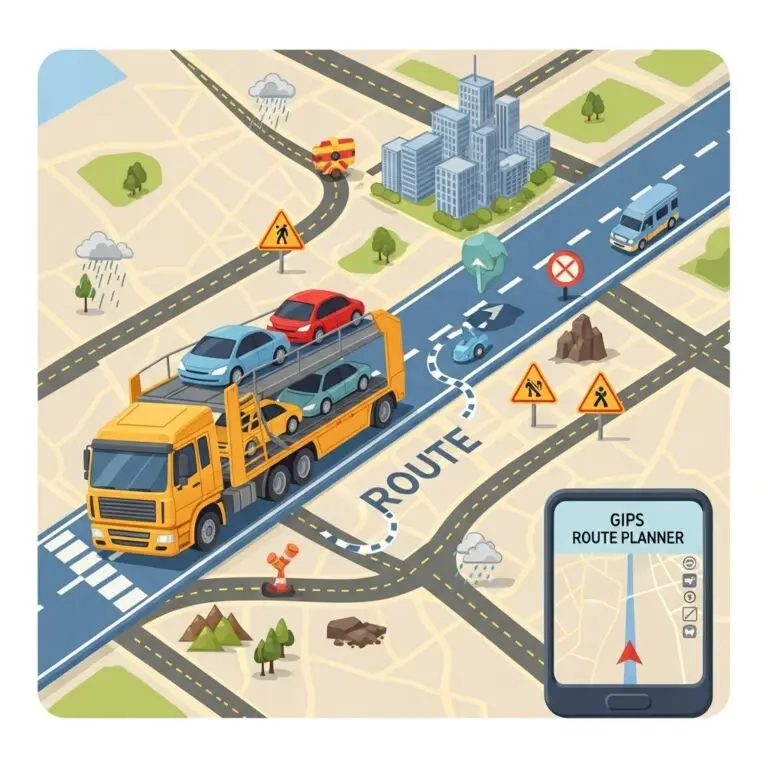
Different from distance, route refers to what highways and other roads will be traveled to transport the vehicle. Routes in highly populated areas may have increased traffic congestion, which could impact transport time and shipping costs. Additional route considerations that can be factored into shipping costs include: physical road conditions, adverse weather and road construction.
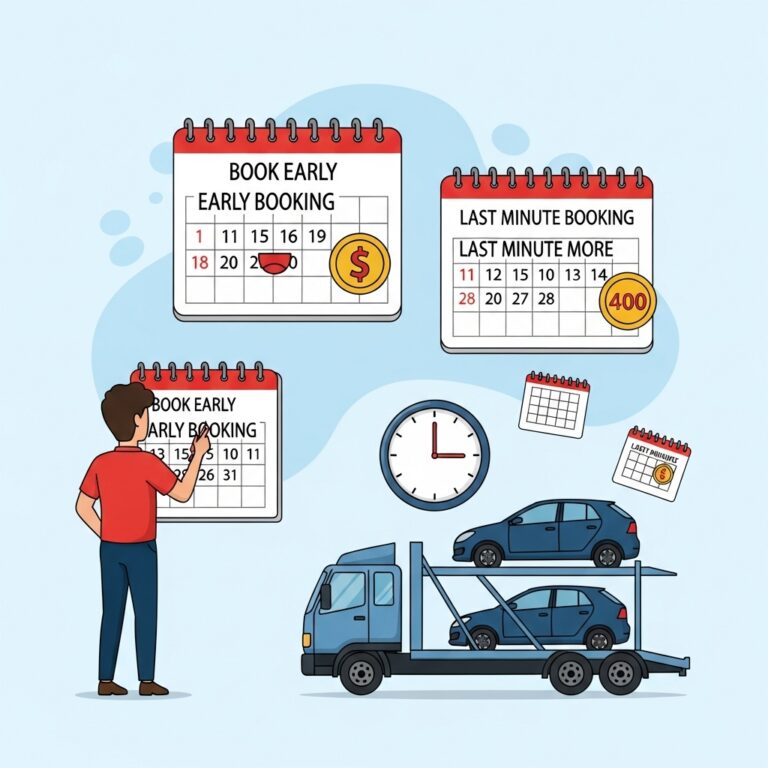
When you book a car transport service, the shipment date often plays a role in the cost. It’s best to book your car shipment as far in advance as possible. As soon as you know you’ll need to ship your vehicle, begin researching an auto transport company to request a car shipping quote. Additionally, increased flexibility around car pickup dates will often result in car transport quote savings.
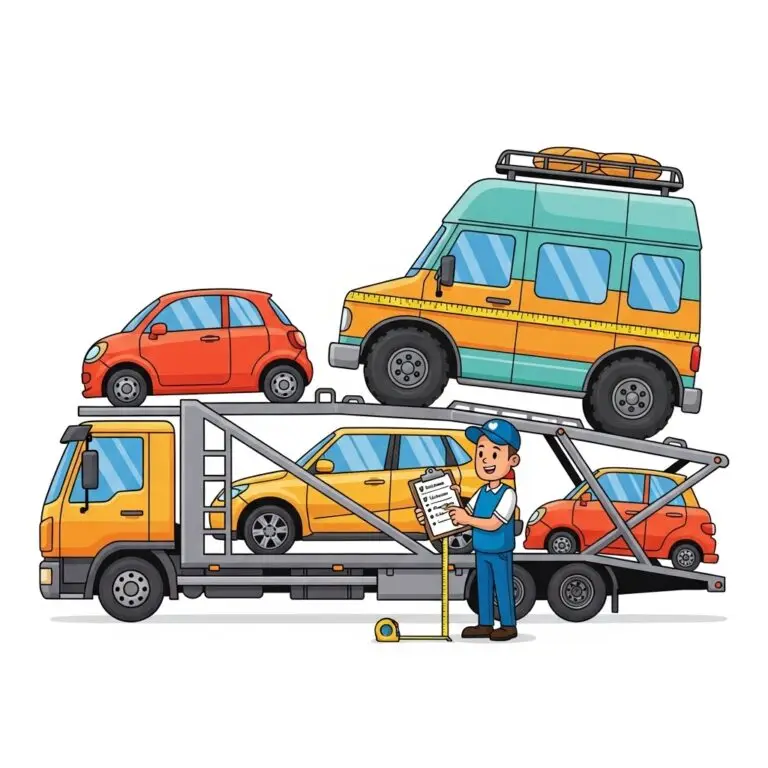
When planning your auto transport, we ask for the exact vehicle specifications, because the truck driver must know how much space is required to safely secure your automobile and ensure proper trailer height and side clearance. Longer and taller cars require additional vehicle transport adjustments, which may slightly increase car shipping costs. Vehicle modifications like larger tires and roof racks can also increase the cost.

Most people shipping a car select open car transport, as it is the industry standard and cheapest way for car shippers to move your vehicle. For extra car shipment protection, we recommend using enclosed car transportation services that shield vehicles from weather and debris. Enclosed auto transport can increase the cost of car shipping, but is worth the peace of mind for delicate, exotic or luxury car transportation.
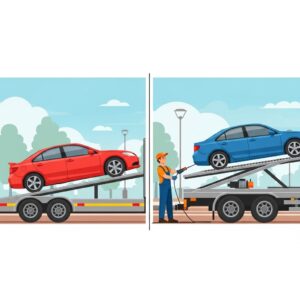
If your car is running, you will get a better auto shipping price from car shippers for the allotted distance. If your car is inoperable, but maintains the ability to roll, steer and brake, it will require a winch and other accommodations to be loaded onto the carrier trailer, which will increase the cost of shipment. To request a quote or to arrange shipment for an inoperable vehicle, please contact a JBRM representative at (866) 301-4039

Taller, longer and heavier vehicles may require a specific trailer or trailer type to support the length and/or added weight. They may also need certain accommodations, like being transported in a specific place within the trailer. Both of these situations could require the driver to take fewer or smaller vehicles to accommodate special requests and manage total allowable weight limits.
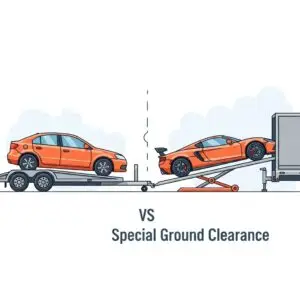
Ground clearance, also called ride height, is the distance between the bottom of the vehicle’s body and the road or driving surface. Low vehicle ground clearance requires special attention and accommodation, such as a specialized ramp. If ground clearance is four inches or less, the vehicle must be shipped in an enclosed trailer equipped with a lift gate, which open trailers do not have.
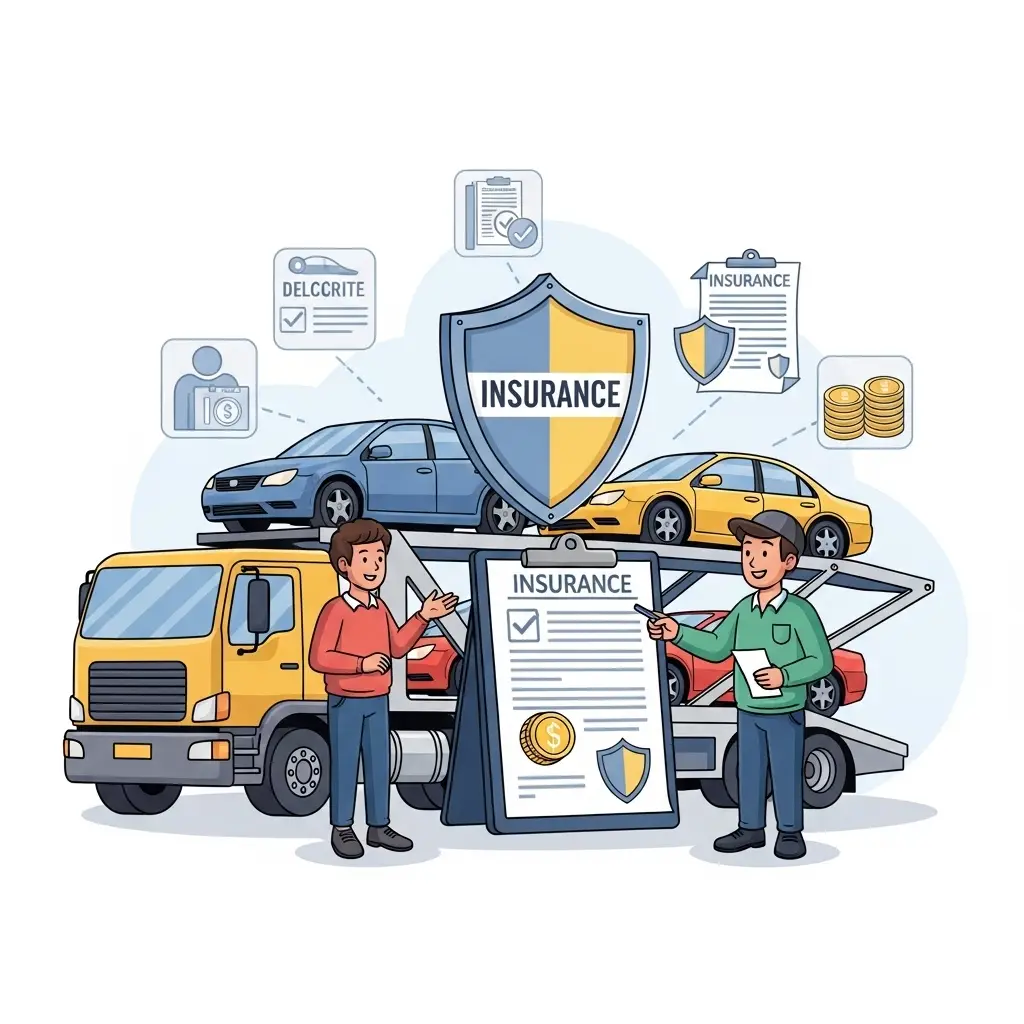
Auto transport companies are held to stringent insurance requirements. Carrier companies are legally required to carry liability insurance and a minimal level of cargo insurance. Auto transport brokers can inform you of your carrier’s amount of coverage. When determining insurance coverage, ask your Montway representative these questions:
